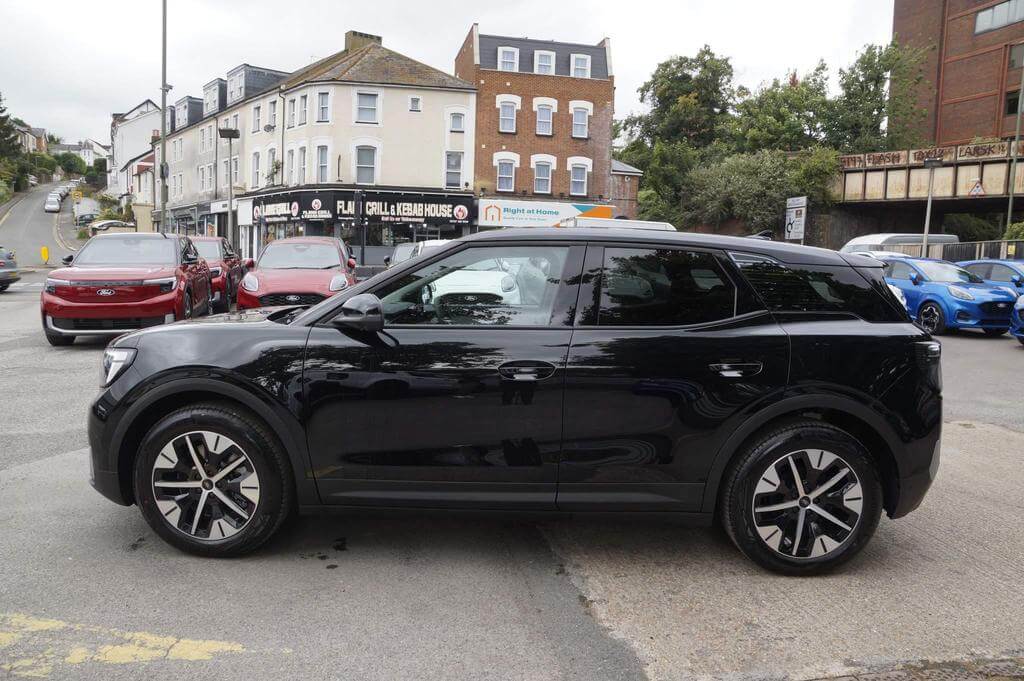
New BYD Electric Cars, Sedans and SUVs Best News
New BYD electric Cars, Sedans and SUVs I BYD UK. Yes, BYD cars are available in the UK. The company has made significant strides.
Signup for our newsletter to get notified about sales and new products. Add any text here or remove it.
[contact-form-7 id="7042" title="Newsletter Vertical"]Is the new Ford Explorer bigger than the Kuga?
Introduction
When considering the size and dimensions of vehicles, particularly when comparing two popular models like the Ford Explorer and the Ford Kuga, it is essential to analyze various aspects such as overall length, width, height, cargo space, and passenger capacity. The Ford Explorer is a midsize SUV that has been a staple in Ford’s lineup for decades, while the Kuga (known as the Escape in some markets) is a compact SUV designed for urban driving and versatility. This comparison will delve into their specifications to determine whether the new Ford Explorer is indeed bigger than the Kuga.
Dimensions Overview
To begin with, let’s look at the basic dimensions of both vehicles. The latest model of the Ford Explorer typically measures around 198.8 inches (5050 mm) in length, 78.9 inches (2000 mm) in width, and 70.2 inches (1785 mm) in height. In contrast, the Ford Kuga measures approximately 181.5 inches (4615 mm) in length, 74.4 inches (1889 mm) in width, and 66.5 inches (1689 mm) in height.
From these figures alone, we can see that:
These measurements indicate that on all three primary dimensions—length, width, and height—the new Ford Explorer is indeed larger than the Kuga.
Passenger Capacity
Another critical aspect to consider when discussing vehicle size is passenger capacity. The Ford Explorer typically seats up to seven passengers across three rows of seating, making it an excellent choice for families or those needing extra space for passengers. The second-row seating can often be configured with either captain’s chairs or a bench seat depending on consumer preference.
On the other hand, the Ford Kuga generally accommodates five passengers with its two-row seating configuration. While it provides ample room for occupants within its compact SUV classification, it does not offer as much capacity as its larger counterpart.
This distinction further emphasizes that not only is the new Ford Explorer physically larger than the Kuga but also more capable of transporting more people comfortably.
Cargo Space Comparison
Cargo space is another crucial factor when evaluating vehicle size and practicality. The Ford Explorer offers substantial cargo capacity due to its larger dimensions and three-row seating arrangement. With all seats up, it provides around 18.2 cubic feet (515 liters) of cargo space behind the third row; folding down these seats increases this figure significantly—up to approximately 87.8 cubic feet (2481 liters) with both rear rows folded flat.
In contrast, while still offering respectable cargo space for a compact SUV, the Ford Kuga provides around 23 cubic feet (651 liters) behind its rear seats and up to about 65 cubic feet (1840 liters) with those seats folded down flat.
Thus, when it comes to cargo capacity as well as overall interior volume available for storage or luggage during travel:
This analysis shows that even though both vehicles are designed with practicality in mind regarding storage solutions for everyday use or road trips alike—the new Ford Explorer offers considerably more cargo space compared to what you would find in a Kuga.
Performance Considerations
While size plays an important role in determining which vehicle may be better suited for specific needs or preferences—it’s also worth noting how performance factors into this equation too! Generally speaking:
The Ford Explorer tends to come equipped with more powerful engine options compared to what’s available on most trims of a typical Kuga, allowing it greater towing capabilities alongside enhanced performance metrics.
Additionally—due largely because of its larger frame—the Explorer often features advanced technology systems aimed at improving handling stability under various driving conditions which can be beneficial if you plan on taking longer trips or venturing off-road occasionally!
In summary: While both vehicles have their strengths based on intended usage scenarios—if you prioritize sheer size along with performance capabilities—the new Ford Explorer would likely serve you better than opting for something smaller like a Kuga!
The choice between these two SUVs ultimately depends upon individual preferences regarding style versus functionality—but if size matters most then there’s no denying that opting for an Explorer over a smaller model like a Kuga makes perfect sense!

New BYD electric Cars, Sedans and SUVs I BYD UK. Yes, BYD cars are available in the UK. The company has made significant strides.

How Fast is Ford Going to Make an EV Explorer?